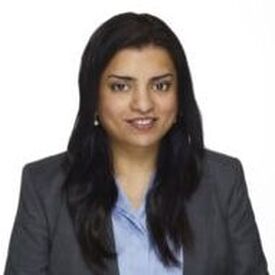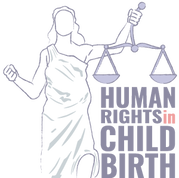Nicholas Rubashkin, M.D., PhD (c).President
Nicholas Rubashkin obtained his MD and MA (Anthropology) from Stanford University. He is an obstetrician who was born at home on a remote island in the state of Maine.
Nicholas is of Hungarian descent and was inspired to conduct research in Hungary after the 2010 European Court of Human Rights decision Ternovszky v. Hungary which required Hungary to legalize home birth. |
In 2014 as a visiting scholar at the Institute of Behavioural Sciences at Semmelweis University in Budapest he conducted survey research concerning Hungarian women’s experiences with evidence-based and respectful care. He is now a PhD candidate in Global Health Sciences at the University California San Francisco (UCSF) where his dissertation research will focus on the global cesarean epidemic. He is also a clinical professor in the Department of Obstetrics, Gynecology, and Reproductive Sciences at UCSF.
Nicholas attended the first Human Rights in Childbirth conference in the Hague in 2012 where the international audience and panelists discussed the implications of the Ternovszky decision for European member states. In January 2015 Nicholas formally joined the HRiC board of directors. As a member of the HRiC network Nicholas has served as an expert witness on the behalf of women and families in their court cases in Lithuania, the Czech Republic, Hungary, Argentina, the Philippines, and in the United States. He was the obstetric expert witness in the Malatesta v. Brookwood case in Alabama where the jury awarded Caroline Malatesta $16 million after she was injured as a result of abusive care during childbirth.
Nicholas can be reached on Twitter @NRubashkin.
Nicholas attended the first Human Rights in Childbirth conference in the Hague in 2012 where the international audience and panelists discussed the implications of the Ternovszky decision for European member states. In January 2015 Nicholas formally joined the HRiC board of directors. As a member of the HRiC network Nicholas has served as an expert witness on the behalf of women and families in their court cases in Lithuania, the Czech Republic, Hungary, Argentina, the Philippines, and in the United States. He was the obstetric expert witness in the Malatesta v. Brookwood case in Alabama where the jury awarded Caroline Malatesta $16 million after she was injured as a result of abusive care during childbirth.
Nicholas can be reached on Twitter @NRubashkin.
Bashi Kumar HazardBoard Member
Bashi Hazard is an Australian lawyer and the principal of B W Law, a legal practice established to support and assist women and children, and the Legal Director of the ANZ arm of the Human Rights in Childbirth (HRiC) International Lawyers Network. Bashi’s background is in competition and consumer law, and litigation, developed while working for several years with Allens in Sydney, immediately after graduating with first class honours in Law and Economics from the University of Sydney.
|
Under her maiden surname, Kumar, Bashi has written and spoken on issues relating to competition and trade practices law, legal professional privilege, and the ethics of free speech and philosophy of law. Bashi’s focus in law expanded soon after she had her first child. From her own experiences, Bashi became aware of the widespread impact of current obstetric models of care on the emotional health and wellbeing of mothers. That awareness took her back to working with fundamental ethical principles and human rights law, and forming networks with human rights lawyers in the USA, Netherlands, UK and Europe, with whom she now works closely to develop a legal discourse about the human rights of women in pregnancy and childbirth. Since then, Bashi has presented papers and keynote speeches at many significant conferences on the topic of human rights in childbirth.
When she is not working for someone else, Bashi is raising 3 young children, teaching ethics and building an ecologically sustainable house.
Bashi can be reached on Twitter @bashazard
When she is not working for someone else, Bashi is raising 3 young children, teaching ethics and building an ecologically sustainable house.
Bashi can be reached on Twitter @bashazard
Daniela Drandić, M.Sc.
Board Member
Daniela Drandić has been head of the Reproductive Rights Program at RODA – Parents in Action, the largest parents’ advocacy group in Croatia and the region since 2012. Her experiences of obstetric violence, abandonment of care and rights violations have fuelled her passion to improve maternity services and rights in Croatia and beyond.
Daniela co-organizes an annual conference held in Zagreb that aims to educate healthcare providers in Croatia and the region on evidence-based maternity care and on human rights during pregnancy and childbirth. She is a member of the Croatian Ministry of Health’s Working Group on the Baby and Mother Friendly Hospital Initiative as well as a facility evaluator for the initiative. Daniela is also a consumer representative for the Croatian Cochrane Center.
Daniela holds a bachelor’s degree from the University of Toronto (Canada) and Master’s in Maternal and Infant Health at the University of Dundee (Scotland, UK).
During her fourth pregnancy, Daniela finally managed to have a pregnancy and birth experience where her human rights, dignity and safety were respected, for which she is forever grateful to her skilled midwives who believe in women. Daniela lives on the northern Adriatic Coast with her partner and three children; her youngest was born at home, after two cesarean sections.
Daniela can be reached on Twitter @DanielaDrandic.
Daniela co-organizes an annual conference held in Zagreb that aims to educate healthcare providers in Croatia and the region on evidence-based maternity care and on human rights during pregnancy and childbirth. She is a member of the Croatian Ministry of Health’s Working Group on the Baby and Mother Friendly Hospital Initiative as well as a facility evaluator for the initiative. Daniela is also a consumer representative for the Croatian Cochrane Center.
Daniela holds a bachelor’s degree from the University of Toronto (Canada) and Master’s in Maternal and Infant Health at the University of Dundee (Scotland, UK).
During her fourth pregnancy, Daniela finally managed to have a pregnancy and birth experience where her human rights, dignity and safety were respected, for which she is forever grateful to her skilled midwives who believe in women. Daniela lives on the northern Adriatic Coast with her partner and three children; her youngest was born at home, after two cesarean sections.
Daniela can be reached on Twitter @DanielaDrandic.
Kaveri Mayra
Board Member
Kaveri Mayra is a midwifery, nursing and global health researcher from India. She has extensive research experience on nursing and midwifery workforce policies, regulation and practice; sexual, reproductive and maternal health care and the underlying gender-based challenges. Kaveri had observed obstetric violence routinely as a student midwife in her pre-service education at a public tertiary level hospital in eastern India and in many Indian states thereafter. She had experienced the powerlessness in changing the narrative as a midwife and nurse student in a male doctor-dominated health care delivery system. She has been on a mission to change this discourse for the last 13+ years and make birthing respectful and midwifery care a reality, particularly in India and Global South where the issues and discriminations are more pronounced.
Kaveri is a global speaker and has delivered guest lectures and speeches in universities and at conferences around the world on obstetric violence; nursing and midwifery governance, the inequities, sexism and discriminations in health policy-making. She spoke about orgasm equality at the 49th Glastonbury Festival. She made interventions at the 72nd and 73rd World Health Assembly on the need for midwifery and nursing leadership in health governance while also highlighting the WASH based challenges as a violation of nurse-midwives human rights who have to work at the primary levels of care without basic necessities. Kaveri is passionate about finding resolutions to ensure that women and their midwives’ human rights are met.
Kaveri was recently recognised as one of the 100 outstanding global midwife and nurse leaders by Women in Global Health, WHO, ICN, ICM, Nursing Now and UNFPA to mark the Year of the Nurse and the Midwife (YONM) 2020. Kaveri is currently working as a Subject Matter Expert with the WHO HQ, to create the Essential Respectful Care Course (ERCC) for the global midwifery community. She is also pursuing her PhD on Global Health at the University of Southampton, where she is exploring the experiences and determinants of obstetric violence in India through an arts-based method called ‘birth mapping’.
When she is not doing the above, she is dancing and sometimes she dances while doing all of the above. You can read more about her and her work at www.kaverimayra.com.
Kaveri can reached be on Twitter @Mayra_K11.
Kaveri is a global speaker and has delivered guest lectures and speeches in universities and at conferences around the world on obstetric violence; nursing and midwifery governance, the inequities, sexism and discriminations in health policy-making. She spoke about orgasm equality at the 49th Glastonbury Festival. She made interventions at the 72nd and 73rd World Health Assembly on the need for midwifery and nursing leadership in health governance while also highlighting the WASH based challenges as a violation of nurse-midwives human rights who have to work at the primary levels of care without basic necessities. Kaveri is passionate about finding resolutions to ensure that women and their midwives’ human rights are met.
Kaveri was recently recognised as one of the 100 outstanding global midwife and nurse leaders by Women in Global Health, WHO, ICN, ICM, Nursing Now and UNFPA to mark the Year of the Nurse and the Midwife (YONM) 2020. Kaveri is currently working as a Subject Matter Expert with the WHO HQ, to create the Essential Respectful Care Course (ERCC) for the global midwifery community. She is also pursuing her PhD on Global Health at the University of Southampton, where she is exploring the experiences and determinants of obstetric violence in India through an arts-based method called ‘birth mapping’.
When she is not doing the above, she is dancing and sometimes she dances while doing all of the above. You can read more about her and her work at www.kaverimayra.com.
Kaveri can reached be on Twitter @Mayra_K11.
Past board members:
Cristina Alonso
Cris is a Certified Professional Midwife and holds a Master’s Degree in Public Health. She founded the Luna Maya Birth Centers in Mexico City and Chiapas. Cris has worked to support and strengthen birth centers in the Latin America region and was co-founder and President of the Mexican Midwifery Association from 2014 to 2017.
She is currently pursuing a Doctorate in Public Health at Harvard University and works with the Goodbirth Network to expand access to and improve standards for Global Midwifery Centers.
Cris is a Certified Professional Midwife and holds a Master’s Degree in Public Health. She founded the Luna Maya Birth Centers in Mexico City and Chiapas. Cris has worked to support and strengthen birth centers in the Latin America region and was co-founder and President of the Mexican Midwifery Association from 2014 to 2017.
She is currently pursuing a Doctorate in Public Health at Harvard University and works with the Goodbirth Network to expand access to and improve standards for Global Midwifery Centers.
Maria Laura Jeanrenaud
Maria Laura obtained her law degree at the University of Buenos Aires and holds a Master in International and European Law by the University of Geneva. Her professional background includes her work in the field of employment law locally in Argentina and internationally in the UN System. She delivered her two children at home, with the support of her skilled and respectful midwives.
She is concerned by the broadly expanded phenomenon of “obstetric violence”, a type of violence against women for causes related to pregnancy –including over medicalization and mistreatment- that is too often regarded as normal in modern societies. Mindful of the negative impact that this phenomenon has in women’s health, Maria Laura is interested in advancing the sexual and reproductive rights of pregnant and birthing women worldwide. She is a Member of the Board of Directors of the Birth Rights Bar Association, an advocacy and legal networking group dedicated to promote rights associated with childbirth in the United States of America.
Maria Laura is also a key collaborator in the “Campaña Nosotras parimos, nosotras decidimos”, an action group dedicated to identify opportunities for local and international activism oriented to advance rights associated with motherhood in Argentina.
Maria Laura can be reached on Twitter @JeanrenaudLaura
Maria Laura obtained her law degree at the University of Buenos Aires and holds a Master in International and European Law by the University of Geneva. Her professional background includes her work in the field of employment law locally in Argentina and internationally in the UN System. She delivered her two children at home, with the support of her skilled and respectful midwives.
She is concerned by the broadly expanded phenomenon of “obstetric violence”, a type of violence against women for causes related to pregnancy –including over medicalization and mistreatment- that is too often regarded as normal in modern societies. Mindful of the negative impact that this phenomenon has in women’s health, Maria Laura is interested in advancing the sexual and reproductive rights of pregnant and birthing women worldwide. She is a Member of the Board of Directors of the Birth Rights Bar Association, an advocacy and legal networking group dedicated to promote rights associated with childbirth in the United States of America.
Maria Laura is also a key collaborator in the “Campaña Nosotras parimos, nosotras decidimos”, an action group dedicated to identify opportunities for local and international activism oriented to advance rights associated with motherhood in Argentina.
Maria Laura can be reached on Twitter @JeanrenaudLaura
Elena Ateva
Elena Ateva is a human rights attorney and an activist for women’s rights in childbirth. She co-founded Rodilnitza, a non-profit organization in Bulgaria in 2009 to advocate for human rights in childbirth. In 2014, she joined Human Rights in Childbirth as an Eastern Europe Legal Advocacy Coordinator and later as a member of the Board of Directors.
Previously, she has worked on domestic violence and trafficking in women issues in Bulgaria and the United States. Elena has worked on national human rights education campaigns in Bulgaria, focusing on the right to informed consent, the right not to be separated from your baby, and the right to privacy and respect during childbirth. She is particularly interested in utilizing UN human rights mechanisms for the protection and full realization of women’s rights in childbirth.
Elena can be reached on Twitter @ElenaAteva
Elena Ateva is a human rights attorney and an activist for women’s rights in childbirth. She co-founded Rodilnitza, a non-profit organization in Bulgaria in 2009 to advocate for human rights in childbirth. In 2014, she joined Human Rights in Childbirth as an Eastern Europe Legal Advocacy Coordinator and later as a member of the Board of Directors.
Previously, she has worked on domestic violence and trafficking in women issues in Bulgaria and the United States. Elena has worked on national human rights education campaigns in Bulgaria, focusing on the right to informed consent, the right not to be separated from your baby, and the right to privacy and respect during childbirth. She is particularly interested in utilizing UN human rights mechanisms for the protection and full realization of women’s rights in childbirth.
Elena can be reached on Twitter @ElenaAteva



